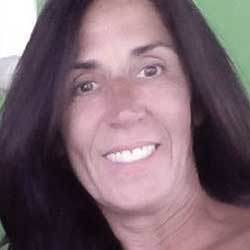
*
A poet who looks at her life as an ‘Uncanny Valley’
*
Poet Jennifer Martelli sees her life as an “Uncanny Valley”– a term she told me that is used to describe the fact that what seems right doesn’t always feel right – thus the title of her new poetry collection The Uncanny Valley (Big Table Books).
Jennifer Martelli is the recipient of the Massachusetts Cultural Council Grant in Poetry, and has been nominated for Pushcart and Best of the Net Awards. She’s taught high school English and women’s literature at Emerson College. She’s an associate editor for The Compassion Project: An Anthology, and lives in Marblehead, Massachusetts with her family.

Poet Jennifer Martelli
I had the privilege to speak to her on my Somerville Community Access TV program Poet to Poet/Writer to Writer.
Doug Holder: You have said in an interview that you write in the plainest language possible. So you have no problem with accessible poetry?
Jennifer Martelli: No, not at all. Early on this was a problem. So many professors would say that my writing is so beautiful, but they didn’t understand what it is about. There was a part of me that felt for poetry to be deep or important it had to be inaccessible in a way. So half the time I didn’t understand what I was trying to say. Eventually I went the other way. I tried to just tell a story. I learned that from Marie Howe. Now I am coming back to the middle, a little. I am trying to balance heightened language that is beautiful, with some artifice. But first I want to communicate with people. It is a razor’s edge sometimes.
DH: You also mentioned in the interview that Elizabeth Bishop, Marie Howe, and Sylvia Plath have influenced you. What is the common thread among these poets that attracts you?
JM: First off they are strong female poets. There is a strong female voice. Over the past six months if I bought a poetry book it was written by a woman. I didn’t start this consciously. I love male poets too, of course. I love Robert Haas, Thomas Lux – with his brilliant short lines – and Tony Hoagland – he was a teacher of mine – probably the smartest man I know. The women poets I mentioned are all different, but again I am attracted to them. What I love about Bishop – Bishop is talking to you in her poems. Like in One Art she is making discoveries in the poem, and she is surprised in the poem.
DH: You studied at Boston University as an undergraduate, and you got your MFA from Warren Wilson. Who were some of the folks of note you studied with?
JM: You know, when I lived in Cambridge, Mass., you could more or less create your own MFA without entering a program. Major poets were living in Cambridge and for as little as a 100 dollars you could opt in. I remember folks like Steven Cramer and Robert Haas had workshops that folks could attend. When I was at Warren Wilson a big influence on me was Ellen Bryant Voight – she is a brilliant woman. Her notes were wonderful. Before the Internet took hold we wrote each other letters. The letters I have from her are like a textbook.
DH: You are the associate editor for the Compassion Anthology. Tell us about this and your role there.
JM: This is really Laurette Folk’s baby. Laurette is a jack of many trades. She is a writer, novelist, and visual artist. She created this anthology online. What she wants to do is to bring compassion through action – like creating art and poetry. I am a poetry reader for the project. I give my input. We are starting to see amazing poets and poetry being contributed to the anthology.
DH: Your new collection is The Uncanny Valley. Tell us about the germ of the idea for this poetry book.
JM: It is essentially biographical. It is about growing up in Revere, Mass. to my life now, in middle-age. It covers marriage, love, and writing. It deals with how one navigates one’s way in the world. I find it inevitably hard. Robin Stratton, my publisher and editor, steered me to discover a great title. An “Uncanny Valley” is a term in aesthetics that describes things that look right but don’t feel right. That describes my 54 years on this earth.
DH: In the collection you have a great poem titled Devil Tide. You describe this group of nefarious unforgiving rocks, the laments of seagulls, as a metaphor for how we cut ourselves off from people.
JM: That poem is a prose poem. It is a conglomerate of the many beaches I visited and lived near. I have always lived near a beach. I have lived in Marblehead, Gloucester, and Lynn. The poem has to do to with how to say goodbye to people who might be dead or not in your life anymore. All these images came together for me and the poem was birthed.
DH: Was there a literary community in Revere where you grew up? I know poet Kevin Carey was born there and the novelist Roland Merullo.
JM: There was no real literary community. It truly was a working-class city. My parents grew up during the Depression and they felt poetry was frivolous. There were really not many places to go with my interest, aside from English class. If you look at Carey’s work and Merullo’s you’ll see what I mean.












Reader Comments